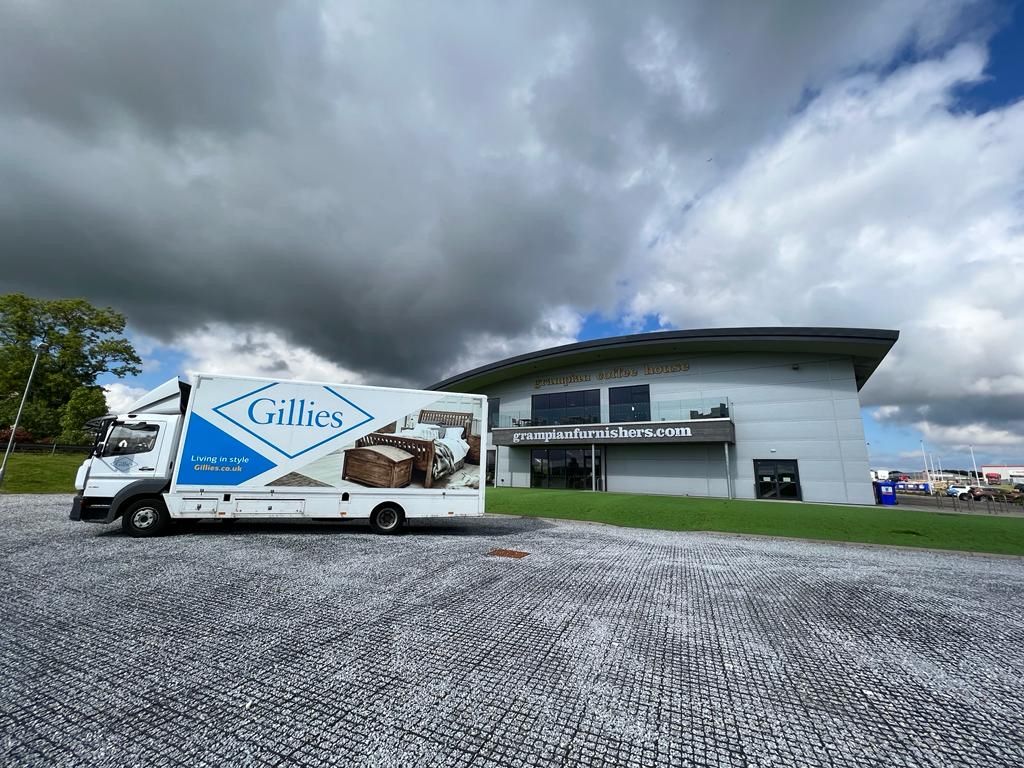Independent furniture retailer Gillies of Broughty Ferry has reported a growth in sales as turnover climbed towards £25m.
According to its latest filed accounts for the year ended 31 August 2022, total sales rose 35% to £24.4m from £18.1m in 2021, a growth by £6m. Pre-tax profit resulted at £2.9m, slightly down from its profit of £3m recorded the previous year.
Stated within its report, the company said that the growth in sales was due to the fulfilment of orders taken post-lockdown in the previous year, price inflation and the acquisition of an additional retail outlet towards the end of the financial year.
“The early part of the financial year saw turnover boosted as customer orders reflecting pent up demand following Covid Lockdowns were delivered, with customer demand remaining buoyant. The economic and political uncertainties which came to the fore as 2022 progressed, e.g. cost of living issues and the impact of the War in Ukraine began to be seen in trading levels, with business conditions becoming more challenging,” Gillies said.
“Supplier price inflation, both for products and freight, placed considerable pressure on our team to manage the offering to our customers. As a long-standing family business we are structured to be able to consider and respond quickly to the challenges that arise, so protecting the underpinnings of the business. Accordingly, although gross margin fell to 48.7% from 49.3% in the previous financial year and profit before tax at £2.9million was down from £3.1million in 2021, the directors are satisfied with this outcome given the trading conditions faced.”
Gillies, which acquired fellow independent furniture retailer Grampian Furnishers in June 2022 and has fully integrated it into its operations. All staff of Grampian Furnishers transferred over as part of the acquisition and this boosted the company’s headcount to 200 at the end of the financial year. This contributed to an increase in payroll costs from £4.9m in 2021 to £5.8m in 2022.
During the year the company continued its practice to invest in its retail stores, keeping them fresh and up to date. With energy costs escalating, particular focus was placed on energy saving activities, with replacement lighting rolled out to all retail stores. Towards the end of the Financial Year the impact of higher energy costs became particularly relevant as the company faced renewing its energy contracts in a volatile energy supply marketplace.
Managing Director, Mr Ian Philp, commented that 2022 was almost a “year of two halves”, with the first half of the Financial Year benefitting from the post Covid lockdown bounce back in consumer confidence, albeit with challenges with Freight operations and costs. “The second half of the year saw consumer confidence deteriorate reflecting poor economic indicators. In the Financial Year 2023, trading has undoubtedly been affected by the general economic situation with interest rate rises and inflation in particular impacting on Customer demand. Such times have been experienced by the company before and I am confident that our Board of Directors is well placed to the steer the business through the challenges that may arise,” he said.















